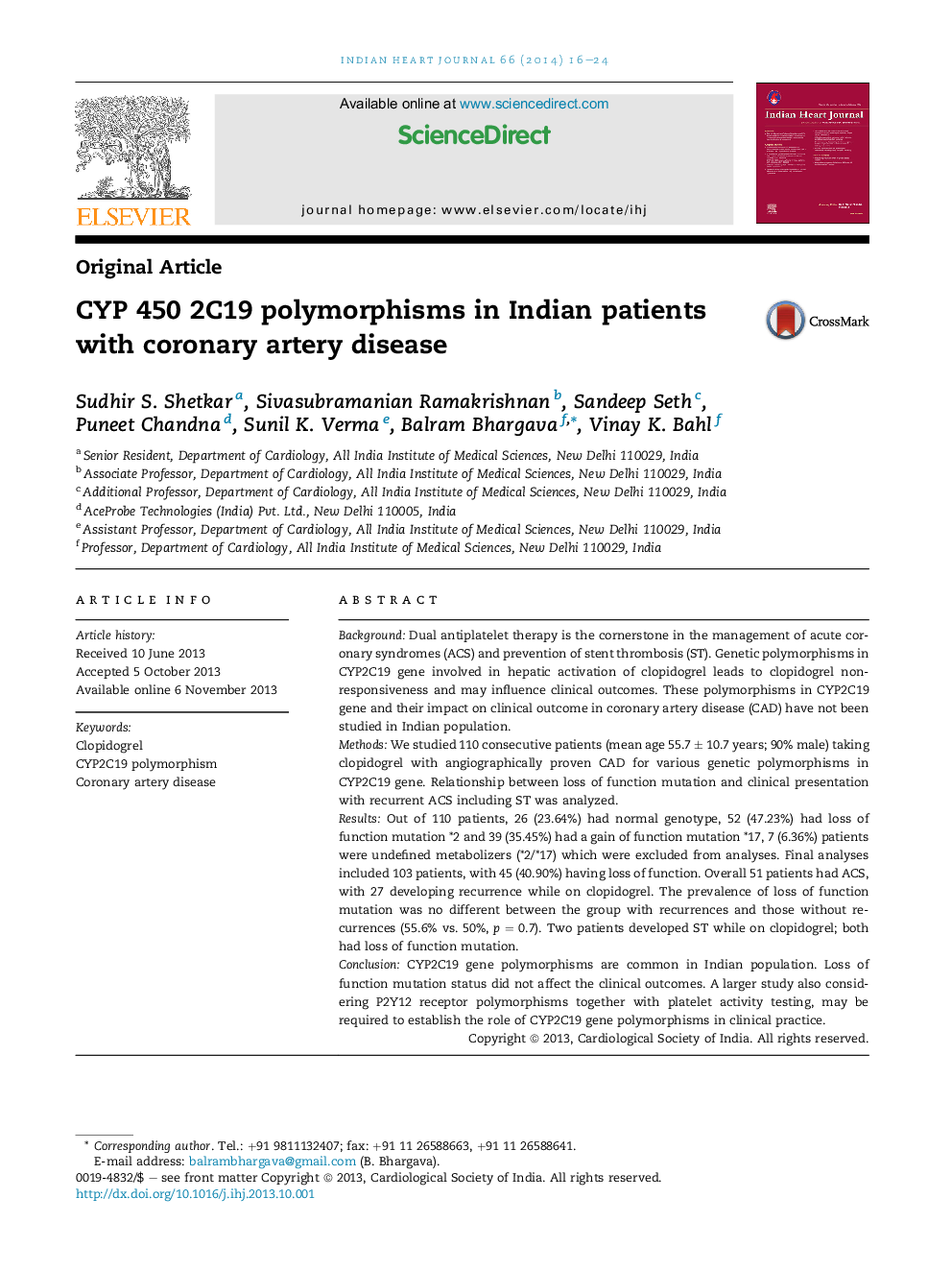| Article ID | Journal | Published Year | Pages | File Type |
|---|---|---|---|---|
| 2928260 | Indian Heart Journal | 2014 | 9 Pages |
BackgroundDual antiplatelet therapy is the cornerstone in the management of acute coronary syndromes (ACS) and prevention of stent thrombosis (ST). Genetic polymorphisms in CYP2C19 gene involved in hepatic activation of clopidogrel leads to clopidogrel non-responsiveness and may influence clinical outcomes. These polymorphisms in CYP2C19 gene and their impact on clinical outcome in coronary artery disease (CAD) have not been studied in Indian population.MethodsWe studied 110 consecutive patients (mean age 55.7 ± 10.7 years; 90% male) taking clopidogrel with angiographically proven CAD for various genetic polymorphisms in CYP2C19 gene. Relationship between loss of function mutation and clinical presentation with recurrent ACS including ST was analyzed.ResultsOut of 110 patients, 26 (23.64%) had normal genotype, 52 (47.23%) had loss of function mutation *2 and 39 (35.45%) had a gain of function mutation *17, 7 (6.36%) patients were undefined metabolizers (*2/*17) which were excluded from analyses. Final analyses included 103 patients, with 45 (40.90%) having loss of function. Overall 51 patients had ACS, with 27 developing recurrence while on clopidogrel. The prevalence of loss of function mutation was no different between the group with recurrences and those without recurrences (55.6% vs. 50%, p = 0.7). Two patients developed ST while on clopidogrel; both had loss of function mutation.ConclusionCYP2C19 gene polymorphisms are common in Indian population. Loss of function mutation status did not affect the clinical outcomes. A larger study also considering P2Y12 receptor polymorphisms together with platelet activity testing, may be required to establish the role of CYP2C19 gene polymorphisms in clinical practice.
